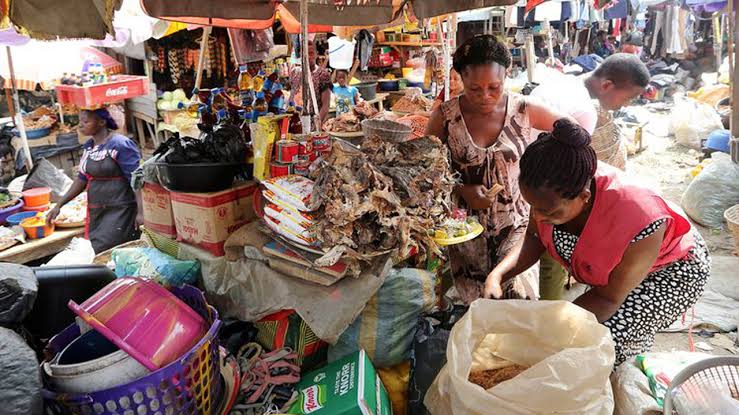Activities put in place to mark the World Food Day will, hopefully, draw the attention of the international community to the imminent food crisis, the after effect of the Covid-19 and the devastations of climate change. This day, celebrated every year worldwide to commemorate the date of the founding of the United Nations Food and Agriculture Organization in 1945, is appropriate as the world gathers to ponder over the humanitarian crisis that shortage of, if not total lack of food, is generating around the world.
As appropriately pointed out by the World Food Program (WFP), 2022 finds with mankind an ongoing pandemic that is proving unrelenting, conflicts as in Ukraine, a climate that won’t stop warming, rising prices and international tensions. All these affecting global food security in a manner that is assuming unprecedented dimensions.
In the opinion of this newspaper, there is too much talk about the need to build a sustainable world where everyone, everywhere has regular access to enough nutritious food. It is from this perspective that we are compelled to begin to appreciate the theme of this year’s event, “Leave no one behind: better production, better nutrition, a better environment, and a better life.”
Instructively, it highlights the importance of global solidarity in promoting sustainable agri-food systems. These, without doubt, are at the heart of a number of issues the world is facing: poverty, health crises and environmental degradation. To address all of these, the world, in our view, needs to drive structural transformation that creates a sustainable and resilient food system in which no one should be left behind. A sustainable world, without gainsaying it, is one where everyone counts.
In this regard, governments, the private sector, academia, civil society and individuals need to work together in solidarity to prioritize the right of all people to food, nutrition, peace and equality. Indeed, every one of us, including the youth, can work towards an inclusive and sustainable future, showing greater empathy and kindness in actions that impact on the most vulnerable.
It is a sad fact, in our opinion, that in spite of efforts to create a better society, too many people have been left behind, unable to leverage the amazing advancements made socially, economically and technologically. Compounding this scenario is the contradiction that the world has the resources to feed everyone, but due to the high expense of eating healthy food, millions of people worldwide are experiencing food insecurity and malnutrition.
We dare to point out, and for the umpteenth time, that the effects of COVID-19, climate change and the invasion of Ukraine are increasing food insecurity around the world, hampering access and availability of nutritious food and impeding success towards Sustainable Development Goal 2: Zero Hunger.
Available record indicates that 75 per cent of people who are food insecure rely on agriculture for their livelihood. Curiously, they are also the hardest hit by natural and man-made disasters and frequently marginalized because of their ethnicity, gender or social status. To achieve global food security, these vulnerable communities need access to financial assistance, innovative technologies and training to sustainably produce nutritious food for their communities.
On this World Food Day, therefore, situations around the world make it imperative that the global community ought to come together. There is need for partnership between governments, the private sector, civil society, farmers and individuals, including the youth, as each has a role to play in transforming the food systems. Even more, there is the need to adopt new habits to improve individual health and create sustainable food systems.
Key facts and figures, in our considered opinion, make the situation at hand compelling and urgent. Statistics available at the United Nations, Food and Agriculture Organization of the United Nations, UNICEF, World Health Organization, World Food Program, World Bank, United Nations Population Fund or International Labor Organization, indicate that more than three billion people—about 40 percent of the world’s population—cannot afford a healthy diet.
In 2021, for instance, an estimated 29.3 percent of the global population – 2.3 billion people – were moderately or severely food insecure and 11.7 percent (923.7 million people) faced severe food insecurity. The gender gap in food insecurity is widening. In 2021, 31.9 percent of women in the world were moderately or severely food insecure compared to 27.6 percent of men. Globally in 2020, an estimated 22 percent of children under five years of age were stunted, 6.7 percent were wasted, and 5.7 percent were overweight.
Projections are that nearly 670 million people will still be facing hunger in 2030–8 percent of the world population, which is the same as in 2015 when the 2030 Agenda was launched. While as many as 828 million people were hungry in 2021, one in eight adults globally are obese, a problem on the rise in all regions, including in low- and middle-income countries.
For Nigeria, the state of insecurity occasioned by banditry and other forms of criminality, paints a scary picture. With the floods washing off farmlands, 2023 portends grave circumstances as far as food security is concerned. That, in our considered opinion, demands concerted and urgent action from the government in the form of assistance to the affected farmers. The worst that we fear must not be allowed to happen.




